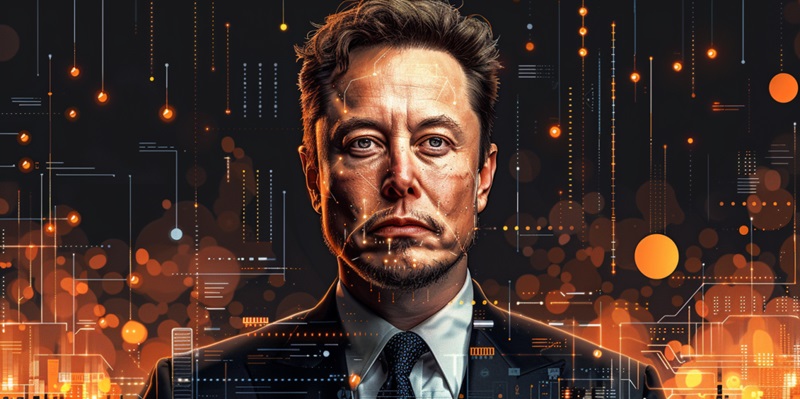Elon Musk, the visionary leader behind Tesla and SpaceX, has sounded the alarm on the accelerated development of artificial intelligence (AI). The tech mogul predicts that within a year or two, artificial general intelligence (AGI) will surpass the smartest human beings on Earth, marking an unprecedented epoch in the history of human civilization. Musk’s forecast is not without merit; the burgeoning capabilities of AI are observable across various sectors—be they industrial, economic, or employment-related. The promise of AGI is a double-edged sword, and Musk’s caution serves as a timely reminder of our need to prepare for a future shaped by intelligent machines. As we stand on the precipice of this technological revolution, one question looms large: How soon will we be outranked by our own creations?
The Age of AI: Rapid Progression and Potential Perils
Artificial intelligence is no longer the stuff of science fiction—it’s becoming a force that could redefine how we live and work. Elon Musk believes this paradigm shift hinges on two critical resources: a stable electricity supply and the availability of advanced computer chips. However, the journey toward AGI is hampered by the shortage of these chips, which affects AI initiatives like XAI’s chatbot Grok. Thousands of high-performance GPUs, like Nvidia’s #00, are likely necessary to push the envelope of AI’s learning capabilities and model training. As the scarcity of such components persists, Musk’s concerns about their indispensability grow more pronounced. AI is not just about breakthroughs in software; the hardware underpinning it is as crucial to its evolution.
The obstacles AI technology is up against are daunting but not insurmountable. The demand for continuous innovation in computational power foreshadows not only AI’s hunger for high-caliber technology but also the importance of a resilient supply chain. Musk’s prognosis underlines the intimate link between AI’s potential and the materials we need to make it a reality—a dependency that could become AI’s Achilles’ heel.
The Power-hungry Goliath: AI’s Energy Demands
The relentless march of AI innovation brings with it a dire need for sustainable energy solutions. Musk’s prediction of an AGI future necessitates a power supply that won’t harm the planet. The balance between advancing AI and maintaining ecological integrity is critical. Data centers, the backbone of AI with their elaborate algorithms and data troves, are particularly power-hungry. There’s a pressing need for AI systems that are not only intelligent but also energy-efficient. As we venture toward creating machines that surpass our cognitive abilities, we must concurrently strive for their operation to be powered responsibly. If overlooked, the expanding carbon footprint of AI could undermine the environmental issues it has the potential to mitigate. Prioritizing green energy for AI is an essential step that innovation and environmental advocacy must jointly address.
Global Market Tensions Influenced by AI
When considering AI’s rise, we cannot ignore the international market dynamics it’s poised to alter. Take for example China, a nation at the forefront of electric vehicle (EV) manufacturing, which stands to outperform global competitors potentially—if not for existing trade barriers. Musk’s insight reminds us of the geopolitical implications AI harbors, as nations vie for technological supremacy. The AI race is not just about innovation but also about how it reshapes the balance of economic powers worldwide. It illustrates the weight AI carries in future trade negotiations and international relations, reinforcing the notion that its impact is as much economic as it is technological.
The tension seen in global markets is mirrored in the labor sector, where employability and artificial intelligence intermingle. The technological spurt leads to difficult discussions about labor rights, job displacement, and adapting skill sets. With mechanisms and robotics capable of performing tasks once the sole domain of human workers, Musk’s observations about the exacerbated tension between labor advancement and technological growth become all the more relevant. In these transformative times, the path towards integrating AI into the workforce may be fraught with challenges, but it also offers an opportunity for redefining the essence of work itself.
The Semiconductor Shortfall: A Key Bottleneck
The semiconductor shortage is a significant roadblock on the road to AI innovation. Beyond the dazzling successes of AI lies a fundamental challenge — a deficit in the critical chip supplies necessary to fuel the technology. Elon Musk has underscored the semiconductor sector as pivotal to AI’s future. As AI’s capabilities surge, the demand for advanced chips does too, necessitating a sturdy and responsive manufacturing network armed to fulfill this growing demand.
The global chip shortage is a glaring indicator of tech’s interdependency; AI’s progress is inextricably linked to our capacity to produce the very components that drive it. Hence, as we forge ahead, bolstering chip production and refining supply chains are imperative. Ensuring a reliable supply of semiconductors is as crucial for AI’s evolution as the pursuit of cutting-edge algorithms and learning frameworks. Addressing this material bottleneck is a strategic element in the trajectory of AI progress.
Steering the Future
As we approach a future deeply intertwined with AI, we face profound changes and challenges. AI will reshape every aspect of our lives, demanding that we grapple with morally complex decisions. We must confront the reality of AI’s decision-making power, demanding accountability especially in sensitive situations. Elon Musk’s vision of a world suffused with AI’s influence is no longer a distant possibility, but an approaching inevitability that we must prepare for responsibly.
Managing AI’s integration into society calls for a meticulous balance of data privacy, societal welfare, and human interaction. As we edge closer to achieving Artificial General Intelligence (AGI), it’s imperative that we lay the groundwork for a future where both human and artificial intellect can coalesce harmoniously. The urgency is clear: our actions today will shape a future where all forms of intelligence are guided to coexist and flourish in a shared ecosystem.

